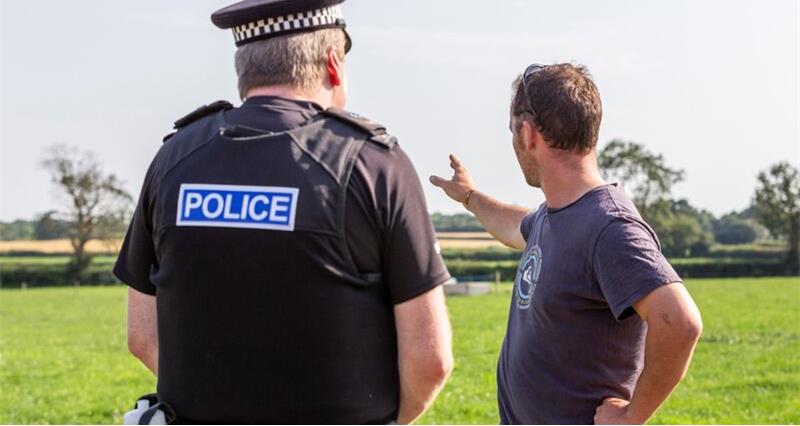Rising threats such as equipment theft, livestock worrying and fly-tipping, among others, continue to disrupt farming life, leaving a lasting emotional toll on those who work tirelessly to produce food and care for the countryside.
There has been encouraging progress in rural crime prevention efforts by a number of Police and Crime Commissioners (PCCs), such as Thames Valley PCC Matthew Barber and Cheshire PCC Dan Price, as well as impressive results from Bedfordshire Police prioritising tackling rural crime through local initiatives such as rural crime task forces and anti-fly-tipping and hare coursing measures in their respective counties. Their commitment serves as a model for how targeted efforts can help make significant differences, but nationally there remains much to do.
In April this year, the government announced its rural crime strategy to stamp out crime and disorder, including tougher measures to crack down on criminal activities such as equipment theft, sheep worrying and fly-tipping. A key focus for the NFU is the implementation of the secondary legislation available in the Equipment Theft (Prevention) Act1 ŌĆō while the Act currently covers All-Terrain Vehicles (ATVs) and quad bikes, there is a pressing need to extend the measures to include agricultural GPS units, which have increasingly become frequent targets for theft. Claims for stolen GPS units surged by 137% in 2023, resulting in an estimated ┬Ż4.2 million in losses for farmers2. Introducing a mandatory register for ATVs and other high-value equipment, alongside defined standards for immobilisers, forensic marking and tracking technologies to support stolen machinery recovery, would be crucial steps toward deterring organised crime gangs targeting farming businesses.
The increasing trends in livestock theft and worrying also require attention. The government has said it is looking into the most effective ways to deliver its commitments in tackling these issues, and we look forward to supporting them on its┬Ādelivery to better protect livestock and prevent further harm.
Rural crime is more than a financial burden ŌĆō it leaves a lasting emotional strain on the farming families affected. The government must ensure the right legislation and resources are in place to safeguard our rural communities.
NFU Vice President Rachel Hallos said: ŌĆ£We were delighted to see the government launch a national rural crime strategy back in April, something the NFU has long been calling for, and we look forward to seeing further progress in its implementation. Farmers are not only bearing the financial cost of theft but also the emotional strain of knowing their family businesses are being targeted, which cannot be overlooked.
ŌĆ£Collaboration is key to tackling these crimes effectively, and the progress made by certain PCCs already demonstrates the positive impact that can be achieved. While crime is a concern wherever it occurs, rural crime presents unique challenges. The scale, cost, social impact and other effects of crime in rural areas are underestimated, under-reported and not fully understood.
ŌĆ£This National Rural Crime Action Week provides an opportunity for the government to build on that momentum and deliver on their promises of a rural crime strategy and send a strong message to those targeting our communities.ŌĆØ
